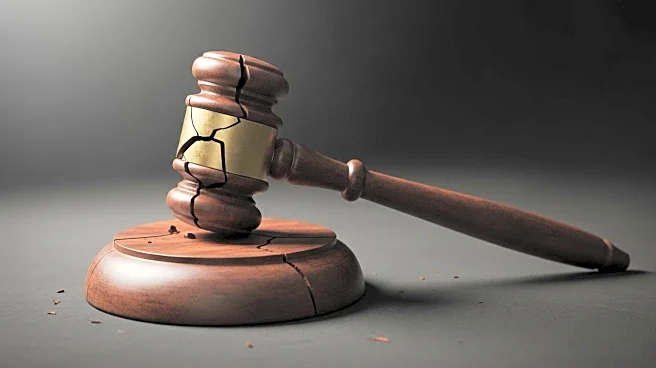What is the story about?
What's Happening?
Former House Speaker Michael Madigan is set to report to federal prison to begin serving a 7 1/2-year sentence for corruption charges. Madigan, who was once considered one of the most powerful politicians in Illinois, must turn himself in by 2 p.m. at the facility designated by the U.S. Bureau of Prisons. His lawyers had requested that he serve his sentence at the medium-security facility in Terre Haute, Indiana, although it remains unclear if this request was granted. Madigan was convicted on multiple counts, including bribery conspiracy and wire fraud, related to a scheme involving Commonwealth Edison. The jury found him guilty on 10 of 23 counts, but acquitted him on several other charges. Madigan's appeal is still pending, but his request to remain free on bond was denied.
Why It's Important?
Madigan's imprisonment marks a significant moment in Illinois politics, highlighting the state's ongoing battle against political corruption. As a long-serving speaker and leader of the Democratic Party, Madigan's conviction underscores the consequences of abuse of power at high levels of government. This case may influence public trust in political institutions and could lead to increased scrutiny and reform efforts within the state's political landscape. The outcome of Madigan's appeal could further impact perceptions of accountability and justice in political corruption cases.
What's Next?
Madigan's appeal process is underway, with his opening appellate brief due in November. The court is expected to hold oral arguments in early 2026. If Madigan's appeal is successful, it could lead to a new trial, potentially altering the course of his sentence. Meanwhile, Madigan's case may prompt discussions among Illinois lawmakers and political leaders about implementing stricter anti-corruption measures and enhancing transparency within government operations.
Beyond the Headlines
Madigan's case raises ethical questions about the influence of money and power in politics. It highlights the need for robust legal frameworks to prevent corruption and ensure accountability. The case also serves as a reminder of the importance of ethical leadership and the potential consequences of failing to uphold public trust. Long-term, this development could lead to cultural shifts in how political figures are perceived and the standards to which they are held.















